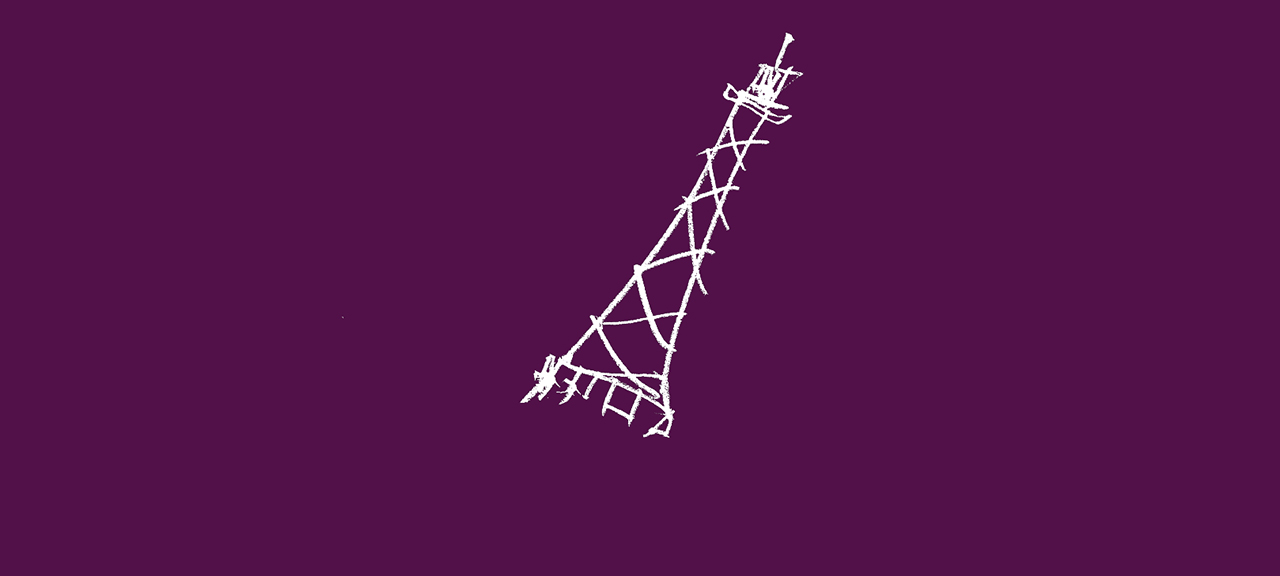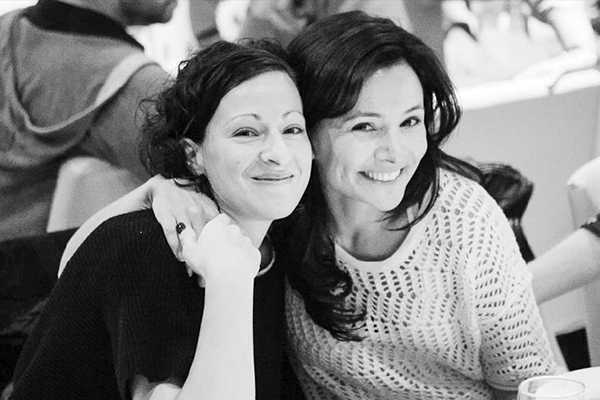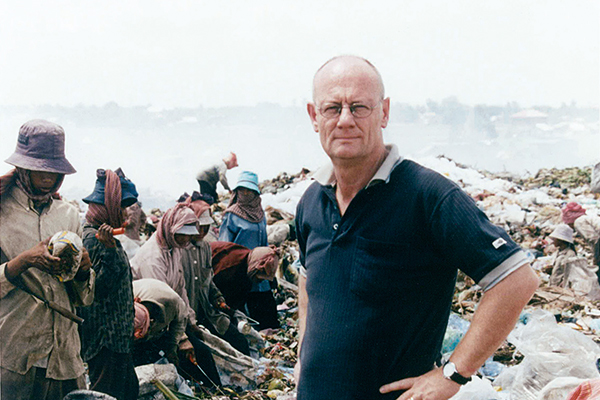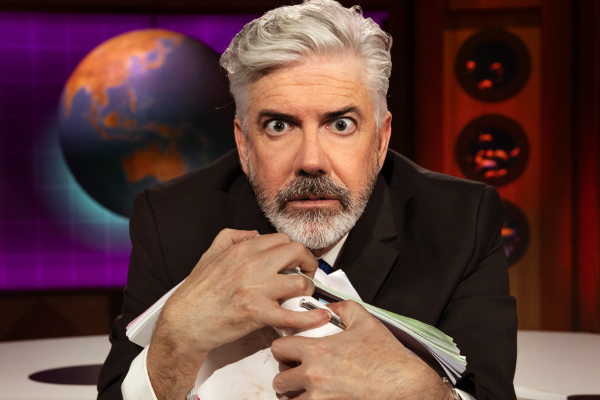The Guillotine
29 Nov 2019 | Jayne Tuttle
Jayne Tuttle wanted everything Paris had to offer. Most of all, she wanted to forget her Australian roots and live her life as a true Parisian. Jayne found herself in a vibrant and dizzying neighbourhood, studying at a gruelling theatre school and falling in love with a Frenchman. In her bold new memoir, Paris or Die, Jayne delves with intense detail into what it was like to be young and naïve in Paris, to grieve there, to grow up there, to try to become an artist there – and one strange night, to almost die there.
It was January. Paris was dark. Short sharp days bookended with long black night. Black in the apartment as my alarm went off, black in the stairwell as I fumbled for the light switch, indigo down the rue de la Chine, past the glow of the already buzzing boulangerie. Mahogany beneath my eyelids as I rattled through the underworld. Grey past the Panthéon to French class and all its subjunctives and conditionals and whatevers-it-took to keep my visa. Then black again: five pm in the Adrienless apartment, his absence thick in the damp winter air. I sat in the shadows thinking, Now what?
‘Come at six o’clock,’ said Sophie in her delicate French. ‘I missed you,’ she continued into the phone, which surprised and flattered me. We hadn’t known each other long, and she had only been gone a week or two. I had forgotten I existed, let alone to new friends like her. I suddenly couldn’t wait to see her. And Lou, her mini Frida Kahlo.
Five-fifteen. Some shopping on the rue des Pyrénées. A few pieces of fruit and three stinky cheeses. Two pear-and-chocolate gourmandises for Sophie and Lou. Turn back: one for me. The Christmas lights were still twinkling in the bare trees. As I was crossing the street admiring them, a man nearly collected me on his scooter. ‘Pardooon,’ his voice trailed behind him. It was a close call but I didn’t bother protesting. He was well and truly gone. Anyway, it was my own fault for trusting the walk sign.
Five forty-five. My kitchen window was frozen shut but I managed to lift it and place the cheeses out on the ledge – too stinky for the fridge. Five-fifty. On my way out the door I turned back, threw off my sneakers, and put on the boots with the heel. A slash of lipstick. The girl in the mirror said, There you are.
I went down to the courtyard to get my bike. Luc, the owner of the restaurant on the ground floor, was there emptying a bottle bin. He told me I must come in soon and taste his new wine. ‘With pleasure,’ I smiled, and pushed through the foyer and out into the dark, damp street.
It started to rain as I rode down the rue de la Chine. It’s crying, I thought to myself, remembering how Adrien had found it cute that I confused words like pleurer (cry) and pleuvoir (rain). It began to cry hard as I hit the boulevard, and straps of hair plastered my face as I wove through the traffic’s never-ending insanity. An ambulance blared up the wrong side of the street. I sped through the intersection so as not to block it. By the time I locked up my bike in the rue Pelleport the rain had stopped, leaving the street a pool of coloured reflections.
Six o’clock, on the dot. I punched in Sophie’s door code and pushed open the heavy glass door to enter her striking Art Deco foyer, with its diamond mirrors and chequered floors. Her building was so authentic. The ornate lift stood empty on the ground floor behind its intricate ironwork gate, but I didn’t take it because I had a rule: under three, use your knees. Besides, it was a small building and the staircase was easy to climb, winding around the open lift shaft, within which the cabin moved freely up and down, its cables and pulleys invisible in the darkness. The protective banister was low, built for petite, mid-century French people, not tall, late-century Australians. I paid no attention whatsoever to the lift or the liftwell or the low banister. The carpeted stairs felt lush beneath my feet. I took them two at a time.
There was no answer at Sophie’s door. I pushed the gold nipple again. The desire to see them seared in me. Where were they?
‘We’re just arriving,’ Sophie apologised into the phone, mumbling something about Lou’s hands being dirty.
The big glass door downstairs clicked and banged shut, followed by the chatter of female voices, a man saying bonsoir.
‘Maman,’ said Lou’s tiny voice, ‘is Jayne already at our place?’
The padding of damp feet up the stairs. I moved a few steps down from the second-floor landing so I could see them. ‘Lou! Up here!’
She looked up from the bottom of the staircase, dark eyes beneath their sweet monobrow searching for me as I peered down from on high. I could see her so clearly, pale skin glowing in the dim stairwell light, but she couldn’t see me. Sophie murmured something and they continued walking up.
I waved. ‘Loo-uu!’
Again she looked up, searching but not seeing. Her face was as bright as the moon, eyes dancing with the fun of the game. She had to see me. I leant a bit further over the banister to make myself visible.
And then.
A curious feeling.
I can see Sophie and Lou walking up the stairs but I can’t play anymore. My head is stuck to the right, my neck jammed beneath something cold and metal. A great weight. I don’t understand. A cool draught whistles in my left ear. My hands are still on the banister, my feet on the stairs. But my head won’t move.
The urge to laugh. This can’t be real. Sophie’s curls are bouncing on the collar of her tan coat as she continues walking up, Lou is saying something about a purple rabbit. They seem close enough to touch and yet very far away. I try to call out to them but no sound comes.
A realisation: I can’t breathe.
And then.
A clink of metal, a flash of light, the roar of an approaching train.
Then black.
Naïve
I arrived in Paris eight years earlier with an overstuffed backpack and no place to stay. I can see myself from above, sitting on the backpack in a polished stone square near the Palais Royal, dwarfed by the façade of the Hôtel du Louvre, the columns of the Comédie Française, and the bustling terrace of the Café Nemours. I am a small blot in the picture, not long twenty-two, the part in my hair turning rapidly pink in the hot afternoon sun. The heat has thrown me: I always pictured Paris as a perpetual snowdome. Sweat drips down my forehead as I sit jetlagged and delirious, staring at a bizarre, bejewelled space octopus.
‘Mademoiselle?’
The octopus, made of silver and coloured glass balls, spreads its limbs over the entrance to a métro station – Palais Royal – from which people spill in and out, going places they know. The sun lights the glass balls like boiled sweets – blueberry, lemon, grape. I fantasise about sucking one, staring so long my eyes begin to water. ‘Mademoiselle?’ says the voice again and I realise it’s talking to me. ‘Do not crying.’
I stop rubbing my eyes. The silhouette of a lady stands a few steps away. She is all polka dots.
‘I wasn’t. Merci. I’m …’
‘You are lost?’
Yes. Utterly, completely. All the hostels I’ve tried are full. I have no idea how I got here or what I am doing in this scorching square in a duffel coat, wanting to suck an octopus leg. All I did was sit down in an airtight chamber in Melbourne twenty-seven hours ago, next to a German called Albert who gave me tissues as I wept, watching the silhouettes of my family in the airport lounge window wave slowly back and forth. Lost? Yes.
Though I suppose I’ve always been coming to Paris. Ever since the new French teacher in high school brought in croissants and films starring Vincent Perez. Since Chris took the place next to me in French class. Since he said je t’aime and took my virginity. I’d kept on with French at university because I didn’t know what else to do, and by then I quite liked it. Even the verb tables. And especially transcription classes, trying to decipher the words in films, pressing rewind and pause until my finger got an arrow-shaped groove in it. That’s how I discovered Betty Blue, and decided to be her, wielding big sighs and new sex things on Chris, who was titillated but unsure. Then he dumped me under his mum’s willow tree. It wasn’t the sex or the sighs; he wasn’t sure he’d ever loved me.
He wasn’t sure what love meant. I wanted to die. Then, I figured, if I was going to end it, I might as well cut my hair off, dye it Betty Blue black, and go to Paris.
I abandoned my honours year and took two jobs, working nine am until two am, seven days a week. When my account read five thousand dollars I quit both jobs and bought a ticket. My friends at the day job gave me a passport wallet. My friends at the night job gave me the backpack. Kevin, a drunk guy from the night job, gave me a lucky penny. Dad gave me the laughing Buddha he’d had next to his alarm clock forever. Mum gave me her Special Dress. My brothers gave me a Swiss Army knife. My sister drilled a hole in the lucky penny, put it on a necklace made of string, and slipped it into the backpack with a note: Come back soon, arsehole.
‘Mademoiselle? I can help you?’
The lady materialises. A middle-aged brunette in a prim grey skirt.
‘Merci,’ I say, squeezing the penny around my neck. ‘Non, I’m fine. I just can’t find a room. Everything … complet.’
She furrows her delicate eyebrows. ‘Do not worrying. I will ’elp you finding zomesing. I am ’aving a friend.’
She pulls a phone from her bag and walks across the square, sending pigeons fluttering. Her stockings have little bows up the back. From behind she looks like Madame Cherubim, my first-year French professor. Her name meant Little Angel but she was a Big Bitch. The back of this lady’s neck is svelte, like a ballerina’s. She wouldn’t slam a door in my face. She wouldn’t laugh at my accent as I read aloud from Le Monde.
She finishes her call and clips back to me, concern on her face. I notice she has one eye that looks out to the side, of its own volition. ‘It is very difficult because it is May and, you know, it is touristes.’ The eye clicks back into place. ‘But my friend is ’aving an ’ôtel on the avenue Ledru-Rollin and she is ’aving one room. Not a good room. But a room. I write it down.’
I don’t know why she doesn’t include me as a tourist, and fantasise for a moment that she thinks I’m French. A hilarious thought, given my ridiculous winter coat, dirty boots, and disastrous hair with blond roots coming through. I don’t know where the avenue Ladoo Roller is, but say merci to the lady, who hands me a torn piece of paper, says, ‘Courage,’ and disappears into the octopus.
The little red street guide is deep in my satchel, amongst the cracker crumbs and boarding passes. A card with the words Bon Voyage written on the curved sail of a ship falls from the book as I pull it out, with Mum’s neat cursive message inside: Our dear petite fille, have a wonderful adventure!
A pang of homesickness – swallowed. The 12th arrondissement. Ledru-Rollin. The guidebook tells me the avenue is not far, but it’s a little book, so distances might be deceiving. I decide to take a taxi and ask two girls on the street, ‘Où est le taxi?’ but they just huddle together and giggle. I walk for a while and a taxi finally stops, and when I show the driver the address he says something under his breath and does a violent U-turn. The man has just farted, deep and spicy. I wind down the window and breathe in the scent of exhaust and smoke and butter as the city swirls about the car in a blur of cement and scarves and bikes and noise. A sign reads Bastille and as we circle around a tall green pole with a gold angel on top, I feel stupid for having expected to see a prison.
The hotel has a reception with a piano in it, and a little old lady who is expecting me. She is nice and ne parle pas anglais so she speaks loud and slow to me like I’m an idiot. Which I am. The room is cheap, so I pay for a week up front and drag my suitcase up six flights of stairs to a door on a landing, next to a closet with brooms and cleaning supplies. A wet mop leans against the door and I place it gently in a corner. There are no other rooms on the floor except a curtained-off area with a shower hose and a toilet, which consists of a hole with two ceramic imprints either side shaped like feet.
“He wasn’t sure what love meant.
I wanted to die. Then, I figured, if I was going to end it, I might as well cut my hair off, dye it Betty Blue black, and go to Paris.”
My room is so beautiful, so Parisian, so high up it’s quiet. An embroidered white curtain billows out over a single sunken bed. I kneel on it to look over the busy avenue below. People are just tiny blobs with feet poking out of them. Dizzy, I pull my head straight back in and wipe my dusty forearms on my jeans. There is a desk with old carvings in the legs. I place my notebook and the Swiss Army knife on the desk. Perhaps I will buy a little bottle of whiskey, I think to myself. Perhaps I will move in. Perhaps the lady will take a liking to me and agree to let me stay for a hundred francs a month and I’ll live here forever, banging the piano and reciting poetry. Perhaps I will die here (of consumption) and nobody will notice; the smell will just fly out the window.
To the left of the desk is a small cracked washbasin. The water that comes out is a light grey. I think of prison and imagine myself out on parole. Then I think of lesbians. I put my soap in the little indent and my toothbrush on the edge, with the mouth part hovering over the bowl so it doesn’t touch. As there’s no cupboard I leave my clothes in the suitcase. Except for the Special Dress, which I drape over the end of the bed so the creases can fall out. It never ceases to amaze me what a small ball such a lovely dress can become. I sense that feeling come on, the hot-weather-in-dodgy-hotel-rooms one, so I lie down on the bed and think of truckers and sluts in cheap motels on highways in America and give myself a little orgasm.
Then I go back downstairs. There’s a man behind the desk this time, with a wide smile and teeth poking out in all directions.
‘Vos clefs, s’il-vous-plaît mademoiselle.’
The words are a blur but I understand his hand gesture and give him my keys. We strike up a conversation about sunshine and I catch ‘outside’ and ‘hot’ and ‘day’, and of course I know ‘Have a nice evening’.
‘Bonne soirée!’ I say back to him, but the ‘r’ catches in my throat and I sound like I’m being strangled.
It’s still light outside though it’s seven pm. The street is crammed with traffic and I wait a long time to cross to a painted patisserie that looks itself edible, and I buy the last croissant. The man smiles; it’s not the right time of day for a croissant. I know this, but in Australia it’s morning and I’m not quite here yet.
The flaky pastry melts in my mouth. It’s like no croissant I’ve ever eaten. At home we have them on Christmas morning, defrosted from a packet and baked with ham and cheese inside. They generally taste like nothing much, but this one feathers my mouth with butter and sweetness. I savour it as I walk down the tree-lined boulevard, turning onto the rue du Faubourg Saint-Antoine, the street the taxi brought me down. I know it goes all the way back to the Louvre, so I point my body that way and walk and walk, glad I chose to wear the Converse and not the shoes with the little heel.
The rue du Faubourg Saint-Antoine is a feast of clothes shops and cafés, movie theatres and bars, all with tall, cream-coloured or grey apartment blocks above them, reaching to the sky. There are lots of woven wicker chairs like in the movies, but a lot more graffiti. I wander and marvel and drink it all in, beyond delirious now, and as I move through the complete unfamiliarity I start to see familiar things, familiar people – the French version of my brother on a motorbike, the Australian prime minister begging outside a supermarket, Chris in a dark bar, kissing another girl. Mum selling bread. Myself in a cheeseshop window: Hello, French me.
Bon-Jour.
All text extracted from Paris or Die by Jayne Tuttle
Available now from bookstores and online
Click here to find your preferred online retailer



